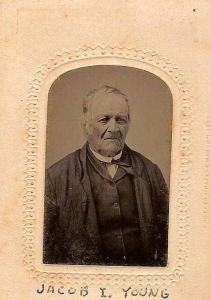Nathan Soule Part IIPosted on April 29, 2017 |
REMEMBERING CLAY
Nathan Soule’s Life in Clay (Part II)
In Clay, Nathan began his political career in 1833 by becoming the second postmaster of the Euclid Post Office in Clay. While in this position, he ran for State Assemblyman for the 23rd District in Clay and won, serving 1837 – 1838. In this position, he introduced a bill in the legislature to make it a state prison offense to lend or borrow money at more than seven percent interest. It was called “Judge Soule’s Bill of Abomination.” It was passed. In 1838, he lost reelection and also his bid on Supervisor of Clay. Nathan threw himself into local business with six others, forming the Oneida Lake and River Steamboat Company as a Director. It eventually relieved the gridlock in Syracuse at the lock. In the 1840’s, he was back in Politics and became an Associate Judge on the Onondaga County Court of Appeals. Always a Democrat, Nathan did get involved in the discord between them and the Whigs on the storing of treasury funds. The dispute was whether to store government funds in sub-treasuries or put them in banks (Independent Treasury- IT) system. In 1846, IT was put into place and lasted until 1921 when the Federal Reserve System took its place. In 1842, Nathan was named chairman of the Democratic Convention held in Syracuse. The Democrats were back in agreement. Temperance was becoming a social issue and in 1847 a meeting was held in Euclid at the Methodist Meeting House to put a stop to selling illegal intoxicating drinks. Our Judge Soule drew up the subscription paper and presented it to the “friends of law and order” at the meeting to be signed by them and circulated around the town. A committee was formed to enforce this law in Clay. Although Nathan did not get elected as County Judge at the 1847 County Convention, he did write the report of the meeting. In 1849, Nathan became one of the five directors of the Salina, Liverpool and Clay Plank Road Company. Called a paved road, it included Morgan Road from Oak Orchard on the Oneida River to Liverpool. The late 1840’s were troubling times for Nathan. The ending of the Mexican-American War brought the issue of slavery to the limelight and splintered the Democratic Party. As a prominent Democrat with an anti-slavery stance, he preached harmony. However, he was appointed President of the 1850 Democratic County Convention. It condemned slavery and promised it would not allow its expansion into the new Western territories. Congress blocked slavery but created the Fugitive Slave Act. Nathan felt it should be repealed. It didn’t help matters when in 1851, Secretary of State Daniel Webster, President Fillmore and others came to Syracuse and told a large crowd that violating the Fugitive Slave Act was “Treason and nothing else.” Feeling betrayed, Nathan and others split with the Democratic Party and formed the Free Democratic Party. On October 11, 1852 this new party held a convention in Syracuse with Nathan as the delegate from Clay. Nathan ran for New York State Treasurer in 1853 under the party’s new name, Independent Democratic Party. However, he, like others who ran on this ticket, lost by a large margin. He was mocked by his opponents who said he lost for certain reasons. He had been vice-president of the celebration of the Jerry Rescue of 1851 in Syracuse. Abolitionists had broke out of jail a captured slave. Nathan had mingled with Frederick Douglass, Gerrit Smith and William Lloyd Garrison. (to be continued) NOTE: Thank you to Zachary Peelman, MSEd for research material
Dorothy Heller, Historian 4-27-2017
Other
Remember Clay Stories

Jacob I. Young
Remembering Clay | Nov 18, 2016
REMEMBERING CLAY
Jacob I. Young, Early Clay Settler

Winter Then & Now
Remembering Clay | Apr 13, 2015
REMEMBERING CLAY Coping with Winter – Then and Now

Henry Clay - The Town's Namesake
Remembering Clay | May 15, 2018
REMEMBERING CLAY
Henry Clay – The Town’s Namesake
